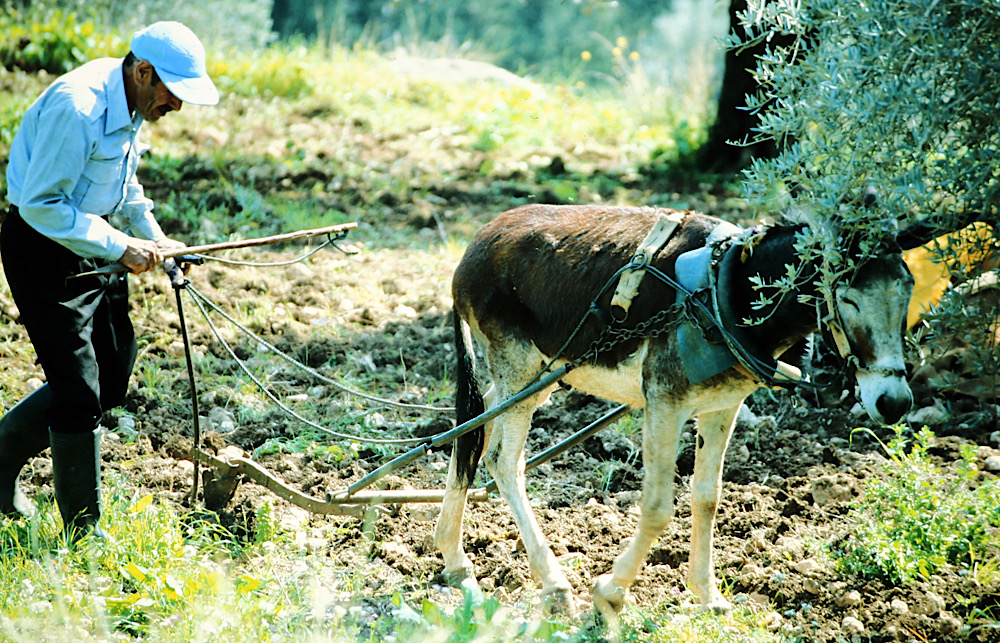Israel opens doors to Asian migrants to replace Palestinian workers
The war against Hamas is profoundly changing Israel’s labour market, especially in agriculture and construction. Tens of thousands of Thais and Nepalis have left, while Palestinian workers are no longer allowed in with Israel calling up of 350,000 reservists. India and Sri Lanka are looking with interest at the opportunities created even if the Indian government will not provide any social protections.
Jerusalem (AsiaNews) – Israel is opening its doors to migrants from Asia to make up for the loss of Palestinian workers, stranded in the West Bank (and Gaza) since the start of the war launched against Hamas in the Strip in response to the latter’s terrorist attack on 7 October.
Over the weekend, the Israeli government, on the initiative of the Ministry of Agriculture (one of the sectors most affected by labour shortages along with construction) approved the increase in the share of foreigners employed in farming by an extra 10,000 compared to the current number.
This is another consequence of the war. In fact, added to the huge destruction inflicted upon Gaza, with tens of thousands of Palestinian deaths, Palestinian farmworkers and labourers have not been able to enter Israel to work in the last 100 days of war.
The new foreign workers will also replace those who fled in the aftermath of the Hamas attack, which harshly impacted migrant workers in Israel as well with killings and abductions.
Such workers include expatriates from Thailand and Nepal, as repeatedly reported in recent weeks, who paid a heavy price in blood, plus the captives whose fate is still a source of concern for their compatriots.
In addition to the 25,000 Palestinians killed in the Gaza Strip, and 1,200 killed by Hamas in its attack in Israel on 7 October, the war has caused a profound change in Israel’s workforce.
More than 29,000 foreigners – mostly Thais employed in agriculture, including farms, greenhouses, and packaging plants – have left the country; moreover, the Israeli army has called up more than 350,000 reservists, creating labour shortages that cannot be filled by Israelis.
One of the main sectors in crisis, other than agriculture, is the construction industry. Without foreign workers — including some 2,000 from China and Eastern Europe who left after 7 October, construction sites across Israel are largely idle, significantly damaging the economy.
The Israel Builders Association (IBA) estimates that the sector, one of the most important with a market value of US$ 71 billion in 2022, is operating at 15 per cent pre-war capacity. This is why the industry has turned to Sri Lanka and India.
The process of hiring more than 10,000 construction workers to be sent to Israel began at Maharshi Dayanand University in Rohtak, Haryana.
“I applied for this opportunity online,” said Govind Singh, an applicant. “After registration, I waited for this recruitment drive. I am a mason and an expert at plaster work. I hope my expertise will be accepted by the Israeli recruiters.”
At a test centre, Israeli officials have set up various construction-related simulations with applicants engaged in live demos as the final round.
“The vacancies are for iron work, tile cutting and fitting, wooden panel fitting and plaster work. The candidates will be shortlisted only after the screening of their skills by the experts,” said a manager who was assisting in the recruitment drive.
The opportunities offered have attracted substantial interest, despite a security situation in Israel that is still critical due to the risks associated with a country exposed to multiple war fronts.
War in the south with Hamas in Gaza and tensions in the north with Lebanon’s Hezbollah have prompted Indian authorities to revoke the social protections granted to Indians who go abroad for work in conflict zones.
As The Hindu newspaper reported recently in an in-depth analysis, citing several official documents, expatriate workers in Israel will not be able to benefit from medical coverage or job guarantees routinely granted by the Indian government to its citizens in the Gulf.
Nevertheless, for many of those looking for work, this does not matter. More than 17 per cent of workers under 29 are unemployed.
“If it’s in our destiny to die, then we can die either here or there. My hope is that we will go and do good work and spend some time and come back,” says Sharma, who would like to earn up to US$ 12,000 a year. “It could take me at least five years to earn the same amount of money in India,” he explains.
The arrival of new foreign workers would radically change Israel’s labour market, with the expulsion of the Palestinians endorsed by a substantial part of the Israeli cabinet, as well as Likud lawmakers who want to exclude Palestinians because they are a “security risk".
This worries NGOs and human rights groups, like the UK-based FairSquare, which recently issued a direct appeal, especially to India, not to send its citizens to Israel to replace deported Palestinian workers, saying that it would be a “craven green light for war crimes”.
Such words and appeals are, however, likely to fall on deaf ears.
01/06/2013
14/07/2022 18:08
12/02/2016 15:14
19/10/2023 17:47







.png)










